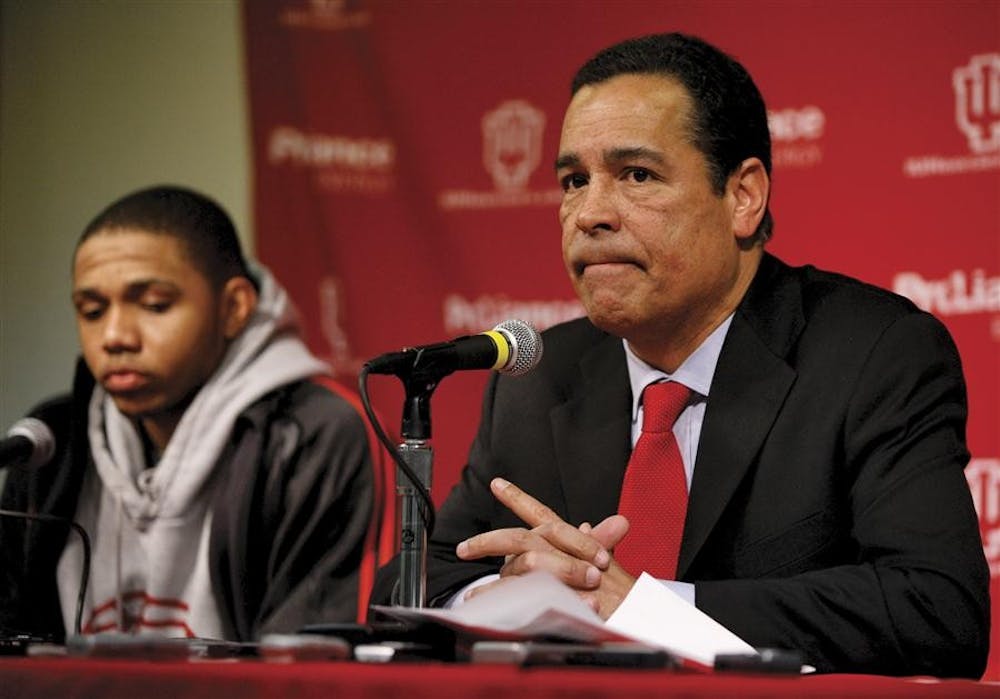Kelvin Sampson.
For Indiana basketball fans, those seemingly innocuous words are two of the dirtiest you could utter, on par with any four-letter epithet.
As he left behind what amounted to a college basketball disaster zone, many hoped he would become a pariah forced into exile.
I hate to break it to you Hoosier fans, but Sampson still matters.
In fact, he’s become a trailblazer whose odd path has shown the NBA should be the ultimate proving ground for a basketball coach.
To college basketball supporters, Sampson’s hiring as the Houston Rockets’ lead assistant coach Tuesday may seem shocking. This was the guy who had been labeled a “liar” and a “cheat.”
In NBA circles, though, the stigma hasn’t carried over and rightfully so. For now, he’s judged solely by his ability to coach winning basketball.
If you’re able to get past the posturing, it’s clear to see major college basketball and the NBA are defined by the same driving forces: winning and making money.
The NCAA would like you to believe winning is trumped by the sanctity of the student-athlete and the value of an education.
Truthfully, it’s an entity that’s been corrupted by television money.
The NBA, however, doesn’t have a similar identity problem. It knows what it’s all about.
For someone like Sampson, who had to deal with some frustrating minutiae at the college level, this was probably refreshing.
His transgressions at Oklahoma and IU may have been construed as negligent, but they were fueled by a desire to succeed.
You don’t make impermissible phone calls because of an incessant need to break the rules; you do it because you think it will help you win.
Big-time college coaches — Sampson included — are the product of a system that blindly promotes winning and does so under a set of antiquated rules.
Last summer when Michigan State coach Tom Izzo was seriously considering an offer to become the Cleveland Cavaliers’ head coach, it felt forced.
Even with the possibility of LeBron James returning, it initially felt like a move just for the sake of change.
With the proper hindsight, Izzo’s drawn out decision-making process makes more sense.
While you have a better chance of becoming an icon at a major college program, there’s too much “other” stuff that goes along with it.
College coaches have become more like CEO’s who must keep a watchful eye on their players and navigate the shark-infested recruiting world.
Sampson’s relatively quick re-emergence should serve as a guide for other ostracized, big-name coaches.
With his fate still in the NCAA’s hands, Bruce Pearl should pay serious attention to Sampson’s career arc.
The former Tennessee head coach and backyard barbecue connoisseur will likely be given a similar five-year show-cause, which will prevent him from latching on with another Division I program during that period.
If I were Pearl, I wouldn’t even consider returning to the college ranks.
Sampson has already laid out the perfect model: hire a great agent — look at the buzz Sampson has had — who will get your name out, cut your teeth as an assistant coach and try to land a head coaching job.
Like it or not, Sampson will get a shot as an NBA head coach. The past few years he’s proved he’s savvy enough to figure out the way things work in the league.
In Houston, he’ll be able to prepare for the future and fulfill his competitive desires.
Coaches driven by the same aspirations should try to take their talents to the NBA.
Sampson shows NBA is way to go for disgraced former college coaches

Get stories like this in your inbox
Subscribe





